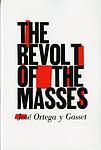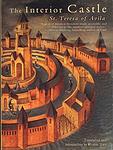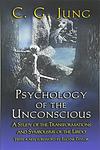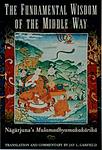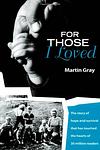The Greatest Multiple, Spanish, Swiss "Nonfiction" Books of All Time
Click to learn how this list is calculated.
This list represents a comprehensive and trusted collection of the greatest books. Developed through a specialized algorithm, it brings together 305 'best of' book lists to form a definitive guide to the world's most acclaimed books. For those interested in how these books are chosen, additional details can be found on the rankings page.
Genres
Countries
Date Range
Reading Statistics
Click the button below to see how many of these books you've read!
Download
If you're interested in downloading this list as a CSV file for use in a spreadsheet application, you can easily do so by clicking the button below. Please note that to ensure a manageable file size and faster download, the CSV will include details for only the first 500 books.
Download-
1. Memories, Dreams, Reflections by Carl Jung
This book is an autobiography of a renowned psychologist who shares his life experiences, insights, and the development of his theories. The narrative delves into his childhood, his career, his relationship with Sigmund Freud, and his exploration into the human psyche. It also provides an in-depth look at the author's dreams and visions, which greatly influenced his work, and his thoughts on subjects such as life after death, reincarnation, and the collective unconscious.
The 1124th Greatest Book of All Time -
2. Tractatus Theologico Politicus by Baruch de Spinoza
"Tractatus Theologico-Politicus" is a seminal work that explores the relationship between religion, politics, and philosophy. The author argues for the separation of theology and philosophy, asserting that the purpose of the state is to promote peace and security through rational governance, free from religious influence. He critiques the role of organized religion in politics and defends the freedom of thought and expression, advocating for a secular, democratic political order. The work also delves into biblical criticism, challenging traditional interpretations and suggesting that the Bible should be analyzed through a historical and contextual lens.
The 1542nd Greatest Book of All Time -
3. On Death and Dying by Elisabeth Kübler-Ross
This groundbreaking book explores the five stages of grief experienced by terminally ill patients. The author, a Swiss-American psychiatrist, introduces the concept of the five stages: denial, anger, bargaining, depression, and acceptance, which has since been universally recognized and applied in various fields. The book is based on the author's series of interviews with dying patients, providing an empathetic and insightful look into the emotional and psychological experiences of those facing death.
The 2080th Greatest Book of All Time -
4. The Revolt of the Masses by José Ortega y Gasset
"The Revolt of the Masses" is a philosophical work that discusses the rise of the "mass man" and the potential danger this presents to society. The author argues that the mass man, characterized by his lack of individuality and rejection of higher values, is a product of modern society and its emphasis on equality. He believes that this mass man, who is more concerned with his rights than his responsibilities, threatens to undermine the very foundations of society, leading to potential chaos and instability. The book serves as a warning and a call for a return to individual responsibility and respect for higher values.
The 2441st Greatest Book of All Time -
5. The True History of the Conquest of New Spain by Bernal Díaz del Castillo
This book provides a first-hand account of the conquest of Mexico by the Spanish during the 16th century. It offers a detailed narrative of the events, battles, and interactions with native tribes, including the Aztecs. The author, a soldier in the Spanish army, provides a unique perspective on Hernán Cortés and his tactics, the politics of the time, and the cultural and religious practices of the indigenous people. The book also highlights the hardships, challenges, and ethical dilemmas faced by the conquistadors.
The 2443rd Greatest Book of All Time -
6. Journey to the Alcarria by Camilo José Cela
"Journey to the Alcarria" is a travel literature piece that takes the reader on a journey through the Alcarria region in Spain. The protagonist, a solitary traveler, explores the landscape, culture, and people of this region, offering detailed descriptions and observations. The narrative captures the essence of Spain's post-war period, revealing the harsh realities of rural life and the resilience of its people. The book is both a physical journey through a specific place and a metaphorical journey into the human condition.
The 2443rd Greatest Book of All Time -
7. Mortal y rosa by Francisco Umbral
"Mortal y Rosa" is a heartbreaking and poignant narrative about a father's grieving process after the loss of his young son. The novel is a profound exploration of death, love, and loss, with the author using beautiful, poetic language to express his deep sorrow and pain. It is not just a lamentation, but also a reflection on life, childhood, and the fleeting nature of time. The book is a testament to the power of words in expressing the inexpressible and a moving tribute to a life cut tragically short.
The 2671st Greatest Book of All Time -
8. Love in the Western World by Denis de Rougemont
The book is an in-depth exploration of the concept of love as it has evolved in Western society, tracing its development from the myth of Tristan and Iseult to modern times. The author argues that the idea of passionate, romantic love that is prevalent in the West is fundamentally a form of destructive passion, often leading to pain and tragedy. The book also delves into the socio-cultural aspects of love, examining how societal norms and expectations shape our understanding and experience of love.
The 2703rd Greatest Book of All Time -
9. The Interior Castle by Teresa of Avila
"The Interior Castle" is a spiritual guide that uses the metaphor of a castle with seven chambers, or 'mansions', to explain the journey of faith. The author describes each mansion as a step closer to God, with the innermost chamber representing union with the divine. The book explores various spiritual concepts such as self-knowledge, detachment, humility, and divine love, providing a roadmap for personal transformation and spiritual growth.
The 2764th Greatest Book of All Time -
10. The Poems Of St. John Of The Cross by John of the Cross
The book is a collection of mystical poetry written by a 16th-century Spanish monk who explores the profound depths of Christian spirituality and the soul's journey towards union with God. Through his lyrical verses, the author delves into themes of love, suffering, and the quest for spiritual purification and enlightenment. His poems are celebrated for their rich imagery and emotional intensity, reflecting his own experiences and the contemplative life. The work is considered a pinnacle of Spanish literature and a significant contribution to Christian mysticism, offering readers a path to understanding the complexities of the divine and the inner workings of the soul.
The 2774th Greatest Book of All Time -
11. Greguerias by Ramón Gómez de la Serna
The book is a collection of witty, poetic, and often surreal aphorisms and reflections that blend humor, irony, and keen observation to capture the essence of everyday objects and experiences in a unique and thought-provoking way. These brief, imaginative musings offer a window into the author's playful mind, as he transforms the mundane into the extraordinary with his inventive use of language and metaphor. The work is a testament to the author's innovative spirit and his ability to see the world through a lens of whimsical creativity.
The 2942nd Greatest Book of All Time -
12. Memories And Commentaries by Igor Stravinsky
"Memories and Commentaries" is a reflective work that offers a window into the mind of one of the 20th century's most influential composers. Through a series of personal recollections and insights, the book delves into the author's artistic journey, his relationships with other prominent figures in the world of music and art, and his philosophical musings on the nature of creativity. The narrative weaves together anecdotes from the composer's life, discussions on his own compositions and musical techniques, as well as his opinions on the works of his contemporaries, providing readers with an intimate portrait of a man whose legacy continues to shape the landscape of classical music.
The 3093rd Greatest Book of All Time -
13. Mars by Fritz Zorn
"Mars" is a poignant autobiographical account of a young man's life and his battle with terminal cancer. The narrative delves into the author's affluent yet emotionally barren upbringing in a Swiss suburb, which he refers to as "Mars," symbolizing its cold and alienating environment. The book is a critique of his repressive bourgeois society, which he believes contributed to his psychological and physical illness. Through introspective and often angry prose, the author explores themes of alienation, the search for identity, and the impact of societal norms on individual well-being. His struggle is not only against the disease but also against the cultural and familial constraints that stifled his emotional development.
The 3158th Greatest Book of All Time -
14. Grid Systems In Graphic Design by Josef Müller-Brockmann
This book is a seminal guide to graphic design and typographic composition, focusing on the use of grid systems as a foundational tool for ensuring visual coherence and hierarchy across various design projects. It provides designers with a methodical approach to organizing text and images in a clean, logical, and aesthetically pleasing manner. Through systematic arrangement, the grid serves as an essential framework that can be applied to a wide range of design work, from print media to digital interfaces. The book delves into the principles, applications, and benefits of grid systems, offering practical advice, examples, and clear illustrations to help designers harness the power of grids to create effective, impactful visual communications.
The 3165th Greatest Book of All Time -
15. Six Studies In Communism by Arthur Koestler, Richard Crossman
This book is a compilation of six essays that delve into the ideological and practical facets of communism. Each study examines different aspects of communist theory and practice, from its origins and evolution to its implementation in various countries. The authors critically analyze the successes and failures of communist systems, exploring the impact on societies that have adopted these principles. The essays also consider the psychological and sociological effects of living under communist regimes, providing a multifaceted perspective on one of the most influential political ideologies of the 20th century.
The 3279th Greatest Book of All Time -
16. Judgement and Reasoning in the Child by Jean Piaget
This book is a seminal work in the field of child psychology, exploring the ways in which children develop their cognitive abilities and reasoning skills. The author delves into the mental processes of children, focusing on how they form judgments, understand cause and effect, and develop logical thinking. The book also discusses the stages of cognitive development, highlighting the shift from intuitive to logical thinking. This influential work has greatly contributed to our understanding of child development and education.
The 4151st Greatest Book of All Time -
17. Psychology of the Unconscious by Carl Jung
"Psychology of the Unconscious" is a pioneering work that explores the complex landscape of the human unconscious, introducing theories that would later become central to understanding personality and human psychology. The book delves into the idea of the collective unconscious, archetypes, and the process of individuation. It further discusses the role of dreams, myths, and symbols in understanding and interpreting the unconscious mind. The author uses case studies and examples from various cultures to support his theories, offering a comprehensive view of the human psyche.
The 4151st Greatest Book of All Time -
18. Eastern Philosophy by Chakravarthi Ram-Prasad
"Eastern Philosophy" provides a comprehensive overview of the major philosophical ideas and traditions originating from the Eastern world, particularly focusing on Indian, Chinese, Japanese, and Persian philosophies. The book explores key themes such as metaphysics, ethics, logic, and epistemology, highlighting how these concepts have been developed and debated over centuries within various Eastern cultures. Through comparative analysis, the text examines the similarities and differences between Eastern and Western philosophical thought, offering insights into the profound depth and diversity of Eastern intellectual traditions. This exploration not only enriches the reader's understanding of Eastern philosophies but also provides a broader perspective on the nature and purpose of philosophy itself.
The 4649th Greatest Book of All Time -
19. Man and His Symbols by Carl Jung
This book is a comprehensive introduction to the world of depth psychology, exploring the significance of dreams, art, and symbols in everyday life. The author and his colleagues delve into the unconscious mind, discussing its influence on our thoughts, behaviors, and experiences. The book emphasizes the importance of understanding and interpreting symbols as a means to gain insights into our unconscious motivations, fears, and desires. It also discusses the role of archetypes and collective unconscious in shaping human behavior and culture.
The 4688th Greatest Book of All Time -
20. Summulae De Dialectica by John Buridan, Gyula Klima
"Summulae De Dialectica" is a comprehensive exploration of medieval logic, focusing on the intricacies of philosophical reasoning and argumentation. The text delves into various forms of logical analysis and syllogistic structures, providing a detailed examination of the principles and applications of dialectical reasoning. It serves as a critical resource for understanding the evolution of logical methodologies during the medieval period, reflecting the intellectual rigor and analytical depth characteristic of scholastic philosophy. The work is pivotal for scholars interested in the history of logic, philosophy, and medieval studies.
The 4688th Greatest Book of All Time -
21. The Fundamental Wisdom Of The Middle Way by Nagarjuna, Jay L. Garfield
"The Fundamental Wisdom of the Middle Way" is a philosophical text that explores the Buddhist concept of emptiness and the nature of reality. The work is a verse-by-verse commentary on the challenges and questions pertaining to conventional existence and ultimate truth, aiming to resolve the dichotomies and contradictions inherent in ordinary experience. Through rigorous argumentation and logical analysis, the text deconstructs the assumptions of inherent existence in phenomena, proposing instead that all things exist interdependently. This exposition not only deepens the understanding of Buddhist philosophy but also offers insights into the nature of suffering and liberation.
The 4688th Greatest Book of All Time -
22. 1984 By George Orwell by Bright Summaries
This book provides a concise and insightful summary and analysis of "1984," a dystopian novel that explores the grim future of a society under totalitarian rule. The summary delves into the key themes, characters, and plot points of the original work, examining the oppressive world where the government controls every aspect of life and individual freedom is obliterated. It offers a detailed look at the mechanisms of power and control used by the ruling Party, the impact of constant surveillance, and the manipulation of truth and history. This guide serves as a valuable resource for understanding the deeper meanings and implications of the novel's exploration of totalitarianism, personal autonomy, and the nature of reality.
The 4687th Greatest Book of All Time -
23. De Anima by Aristotle
"De Anima" is a foundational philosophical treatise that explores the concept of the soul and its relation to the body. The work delves into the nature of life itself, categorizing different kinds of souls possessed by different kinds of living things, such as plants, animals, and humans. It discusses the faculties of the soul, including the nutritive, perceptive, and intellectual aspects, and investigates their functions and interactions. The treatise also examines issues of perception, cognition, and memory, arguing that the soul is the principle of life and the source of all vital functions, ultimately aiming to define the essence of life and the basis of all living activities.
The 4688th Greatest Book of All Time -
24. The World Of Economics by John Eatwell, Murray Milgate, Peter Newman
"The World of Economics" is a comprehensive reference book that serves as an essential guide to the field of economics, offering a wide-ranging compilation of entries penned by an international group of economists and scholars. The work covers key concepts, theories, and figures that have shaped economic thought, providing readers with a deep understanding of both historical and contemporary economic issues. Its encyclopedic format presents a wealth of information on various topics, including economic policy, market structures, and foundational principles, making it a valuable resource for students, professionals, and anyone interested in the complexities of how economies function and evolve.
The 5008th Greatest Book of All Time -
25. For Those I Loved by Martin Gray
The book is a harrowing memoir of survival and resilience, chronicling the author's experiences during the Holocaust. As a young Jewish boy in Poland, he witnesses the brutal murder of his family by the Nazis and endures the horrors of the Warsaw Ghetto and Treblinka extermination camp. Against all odds, he manages to escape and join the resistance, fighting for freedom and justice. After the war, he rebuilds his life, only to face tragedy again when his wife and children are killed in a fire. The narrative is a testament to the human spirit's capacity to endure and find meaning in the face of unimaginable suffering.
The 5251st Greatest Book of All Time
Reading Statistics
Click the button below to see how many of these books you've read!
Download
If you're interested in downloading this list as a CSV file for use in a spreadsheet application, you can easily do so by clicking the button below. Please note that to ensure a manageable file size and faster download, the CSV will include details for only the first 500 books.
Download


